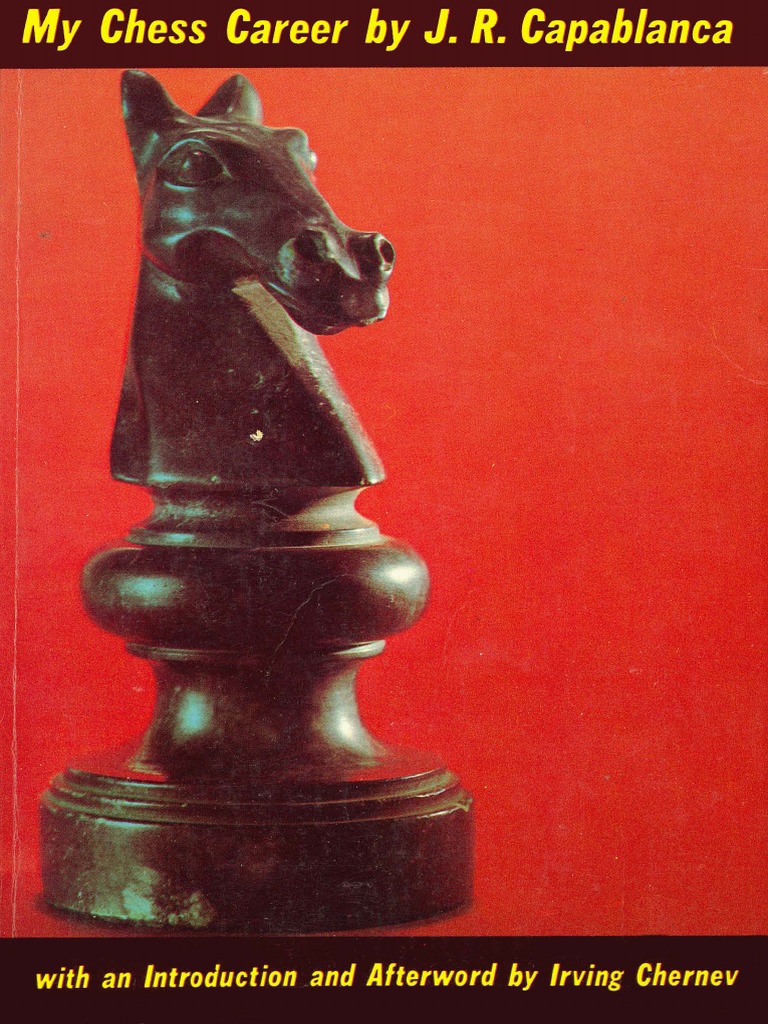Image from page 222 of Chess fundamentals (1921)
Por um escritor misterioso
Last updated 10 novembro 2024
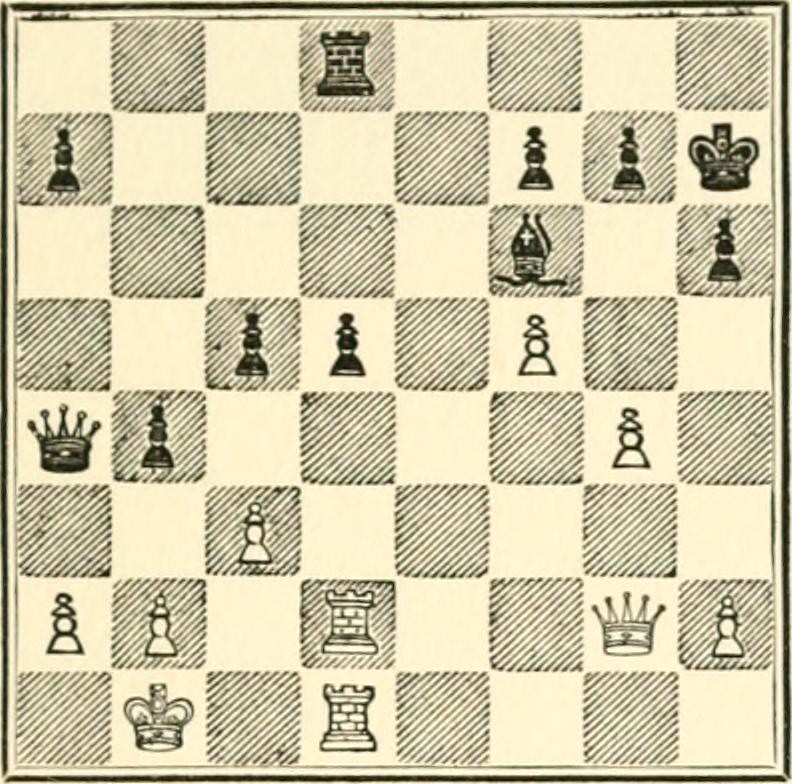
Identifier: chessfundamental00capa Title: Chess fundamentals Year: 1921 (1920s) Authors: Capablanca, José Raúl, 1888-1942 Subjects: Chess Publisher: New York : Harcourt, Brace and company [etc., etc.] Contributing Library: University of California Libraries Digitizing Sponsor: MSN View Book Page: Book Viewer About This Book: Catalog Entry View All Images: All Images From Book Click here to view book online to see this illustration in context in a browseable online version of this book. Text Appearing Before Image: his Rooks correctly from the point of view ofstrategy. They are both on white squares free fromthe possible attack of the Black Bishop. 31. Q-R3 Q-R5 This gains time by attacking the Rook and holdingthe White Q at R 3 for the moment, on account ofthe K Kt P. Besides, the Queen must be in the middleof the fray now that the attack has to be broughthome. White has actually more value in material,and therefore Black must utilise everything at hiscommand in order to succeed. 32. R(K2)-Q2 Q-K5ch 33 K-Ri P-QKt4 threatening P — Kt 5; which would open the lineof action of the Bishop and also secure a passed Pawn. 34. Q-Kt2 Q-R5 indirectly defending the Q P, which White cannottake on account of Q X R ch. CENTRE GAME 207 35. K-Kt I P-Kt5 The attack increases in force as it is gradually broughthome directly against the King. The position nowis most interesting and extremely difficult. It isdoubtful if there is any valid defence against Blacksbest play. The variations are numerous and difficult. Text Appearing After Image: 36. PXP QxP Black has now a passed Pawn, and his Bishop exertsgreat pressure. White cannot very well play now37 RxP because of RxR; 38 R x R, B x P;and WTiite could not take the Bishop because Q —K 5 ch would win the Rook, leaving Black a clearpassed Pawn ahead. P-QR3 Q-R5! RxP R-QKti R(Ql)_Q2 P-B5 Q —Kt3 R—Kt6 Q-Q6 37.38. 39.40. 41. 208 GAME 8 ^ s ■mm i i ^ ^jp ^™ VA 63 , , ; A ^^^ ^^^ ^^^ f ^^ ^^i ^^P ^M ^;.-^ 41. P —B6 B X P would also win, which shows that Whitesgame is altogether gone. In these cases, however,it is not the prettiest move that should be played,but the most effective one, the move that will makeyour opponent resign soonest. 42. R—QB 2 43- R-Q344. R-Qi Resigns. PxP Q-K5IR —QB6 Of course White must play Q—Q 2, and Black thenplays R X P. QUEENS GAMBIT DECLINED 209 GAME 9. QUEENS GAMBIT DECLINED(Berlin, 1913) White: J. R. Capablanca. Black: R. Teichmann. I. P-Q4 P-Q4 2. Kt -^K B 3 Kt—KB 3 3- P-B4 P-K3 4- B-Kt5 B —K2 5- Kt-B3 QKt —Q2 6. P-K3 0-0 Note About Images Please note that these images are extracted from scanned page images that may have been digitally enhanced for readability - coloration and appearance of these illustrations may not perfectly resemble the original work.
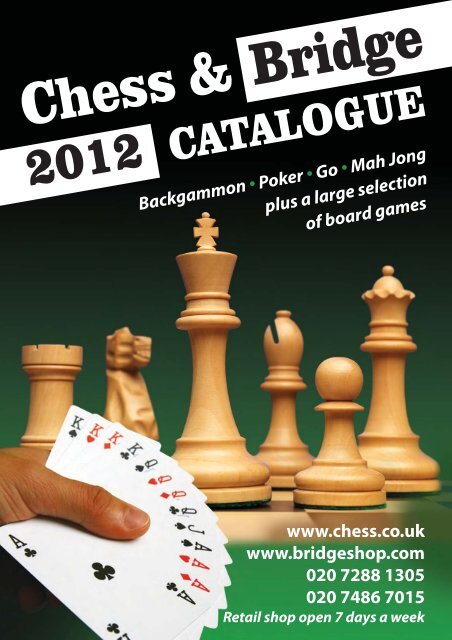
Download Catalogue! - London Chess Centre

Keverel Chess Catalogue, PDF, Chess

Chess Fundamentals.
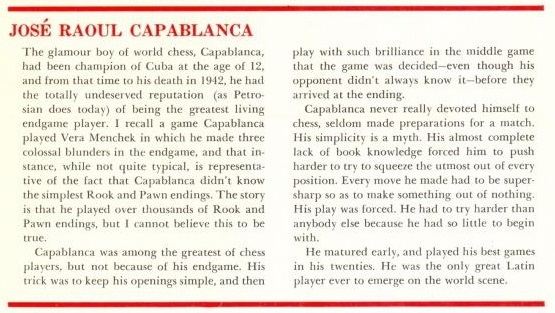
José Raúl Capablanca Miscellanea by Edward Winter

Chessversity
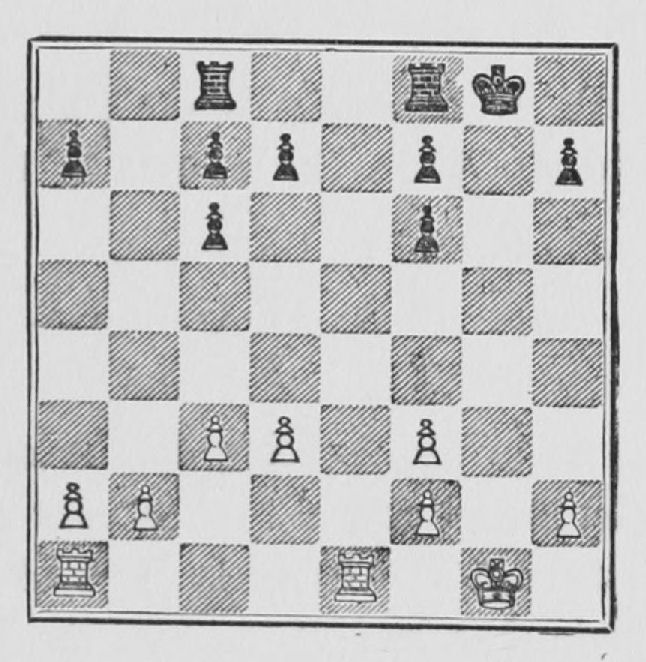
Chess Fundamentals.
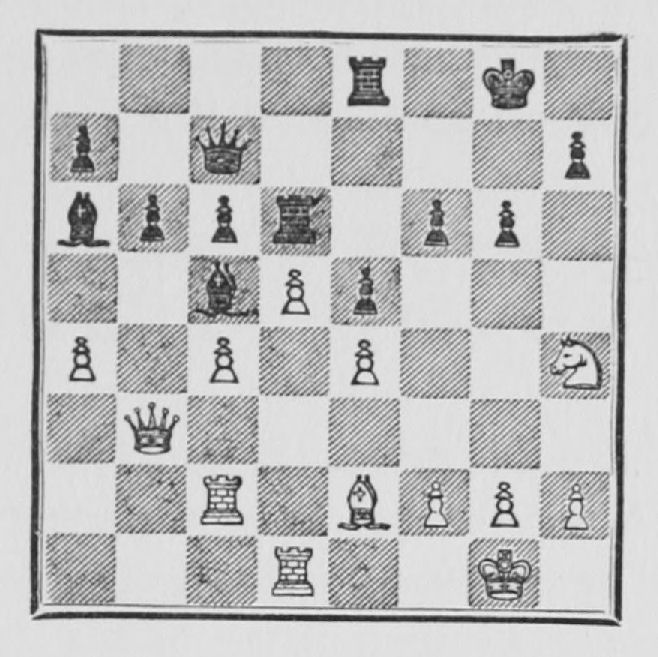
Chess Fundamentals.
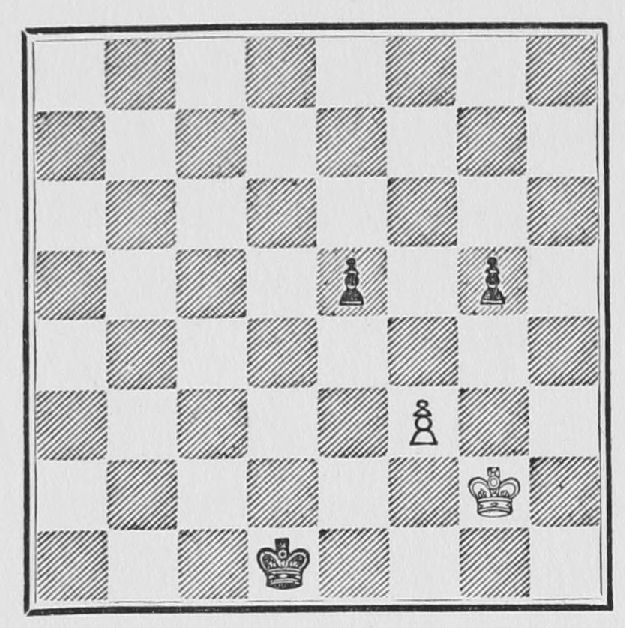
Chess Fundamentals.
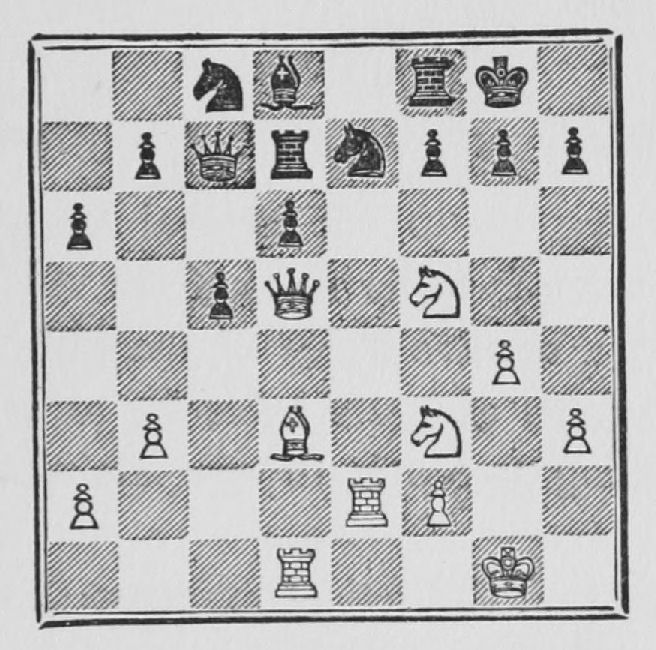
Chess Fundamentals.

Rudichess
Recomendado para você
-
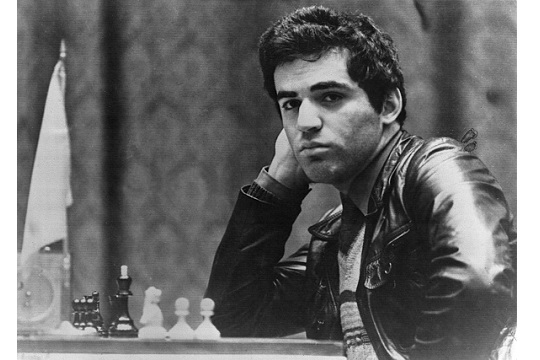 Os 10 Melhores Enxadristas de Todos os Tempos10 novembro 2024
Os 10 Melhores Enxadristas de Todos os Tempos10 novembro 2024 -
 Principais Enxadristas10 novembro 2024
Principais Enxadristas10 novembro 2024 -
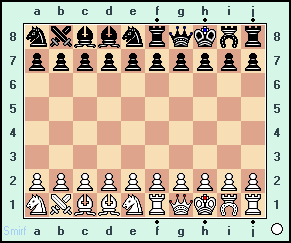 Capablanca Random Chess10 novembro 2024
Capablanca Random Chess10 novembro 2024 -
Capablanca, Jose - My Chess Career10 novembro 2024
-
 Learn What Chess Teaches Kids About Life! - Chess for Students10 novembro 2024
Learn What Chess Teaches Kids About Life! - Chess for Students10 novembro 2024 -
Dou Shou Qi (Jungle Game or Animal Chess) set.JPG10 novembro 2024
-
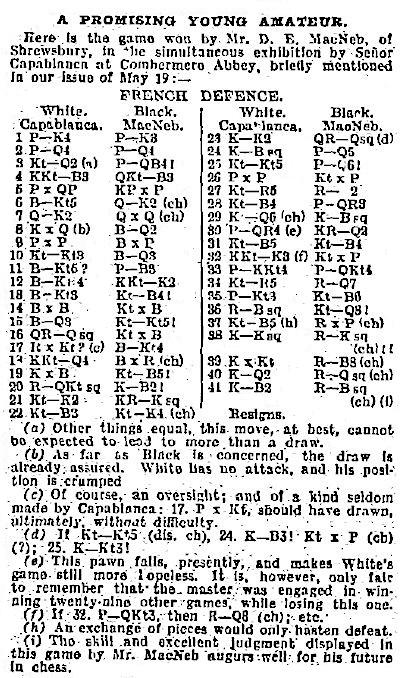 Chess Notes by Edward Winter10 novembro 2024
Chess Notes by Edward Winter10 novembro 2024 -
 The Complete Idiot's Guide to Chess, Third by Wolff, Patrick10 novembro 2024
The Complete Idiot's Guide to Chess, Third by Wolff, Patrick10 novembro 2024 -
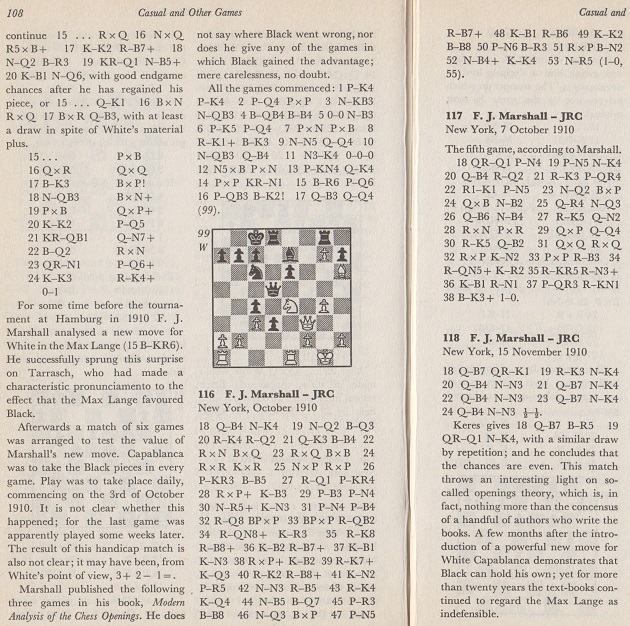 Chess Notes by Edward Winter10 novembro 2024
Chess Notes by Edward Winter10 novembro 2024 -
 Capablanca. Mito intramontabile10 novembro 2024
Capablanca. Mito intramontabile10 novembro 2024
você pode gostar
-
 2023 Top 6 Facebook Lite Video Downloaders10 novembro 2024
2023 Top 6 Facebook Lite Video Downloaders10 novembro 2024 -
 FIFA 23 Best Defenders (CB, LB, RB, LWB & RWB) – FIFPlay10 novembro 2024
FIFA 23 Best Defenders (CB, LB, RB, LWB & RWB) – FIFPlay10 novembro 2024 -
 Elasticsearch Platform — Find real-time answers at scale10 novembro 2024
Elasticsearch Platform — Find real-time answers at scale10 novembro 2024 -
 Remove já estas aplicações do teu Android antes que roube dados10 novembro 2024
Remove já estas aplicações do teu Android antes que roube dados10 novembro 2024 -
Nidos Argentina - #ACTUALIZACIÓN: CARACTERÍSTICAS DE MEW El último10 novembro 2024
-
 CSGO AWP Atheris Battle Scarred10 novembro 2024
CSGO AWP Atheris Battle Scarred10 novembro 2024 -
 BAD BOY Loja Oficial - Confira a marca que marcou gerações – Bad Boy10 novembro 2024
BAD BOY Loja Oficial - Confira a marca que marcou gerações – Bad Boy10 novembro 2024 -
 Desenhos Animados Ilustração Bonito Tiranossauro Rex Desenhos Animados vetor(es) de stock de ©rubynurbaidi 29632693010 novembro 2024
Desenhos Animados Ilustração Bonito Tiranossauro Rex Desenhos Animados vetor(es) de stock de ©rubynurbaidi 29632693010 novembro 2024 -
 Bluebeam Revu: Studio Basics and Login (Revu 2019)10 novembro 2024
Bluebeam Revu: Studio Basics and Login (Revu 2019)10 novembro 2024 -
 Spider-Demon: my spidersona TheEpicBean - Illustrations ART street10 novembro 2024
Spider-Demon: my spidersona TheEpicBean - Illustrations ART street10 novembro 2024
